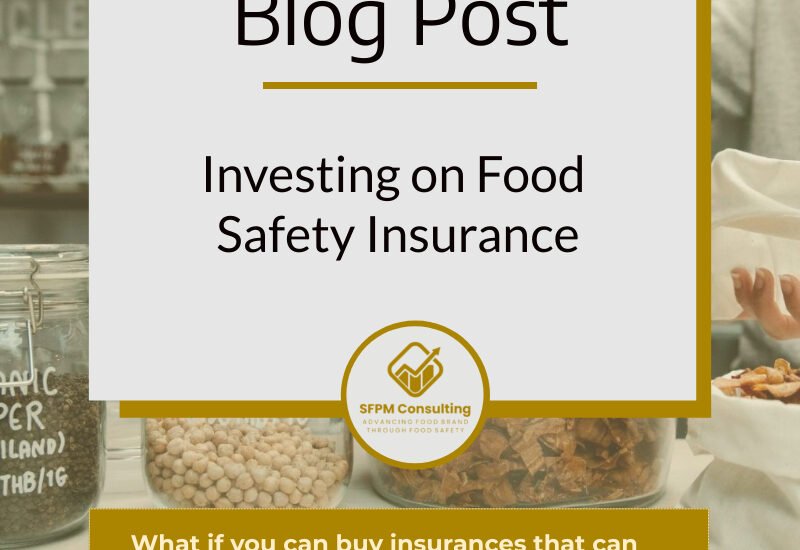- August 16, 2020
- Posted by: Felicia L
- Categories: Business, Food Safety, Start-Up

Many of us purchased insurance for different purposes such as health insurance, travel insurance and public liability insurance. Let’s discuss why we get insurance and what can we recover from having an insurance policy? Moving on, can we have insurance specific to food safety risks?
A quick google search for the definition of insurance defined insurance practice or an arrangement by which a company or government agency provides a guarantee of compensation for a specific loss, damage, illness or death in return for a payment in the form of a premium.
Insurance minimizes our risk of specific loss, damages, illness or death by providing monetary relief. Here is the catch, it is monetary relief; meaning it cannot recover damages that have been made to human health and relive the death.
Most food businesses choose to minimize risks by insuring the risk with premium and in return, insurance helps to minimize many risks against public liabilities, theft, loss etc. Most of the time, it is a small investment to lower the risk of doing business. Most businesses ended up not claiming back the premium paid because the risk is too low and nothing happened. Why would a company still be willing to invest in insurance?
Let’s look at the relationship between food businesses and insurance, specifically on food safety risks. Food-borne illnesses caused by pathogens such as E. coli O17: H7, Salmonella sp, and Listeria monocytogenes cause severe damage to human health and are sometimes, life-threatening. It is especially true for the young, elderly and pregnant mothers. It can lead to hospitalization and more severe death.
Food businesses are subjected to ensure that the food product is manufactured, distributed and sold in a sanitary manner, to prevent food-borne illness and other harm to the consumers. Since insurance can only compensate in the form of monetary payment, food businesses needed something else to minimize food safety risks.
Food safety management systems (FSMS) do not only serve as a program to meet customer and regulatory requirements but also, as a program that helps minimize risks of food-borne illnesses and outbreaks. It is a costly program to manage and maintain. Most important of all, the return is not as visible as the sales records, which can be quantified. In fact, it is just like insurance; the amount invested may not be recovered.
The biggest values of FSMS in my point of view are being able to put in preventative strategies to mitigate food safety risks to the consumers and to earn trust and confidence (brand reputations).
As with insurance, you may ask how much premium should you invest? Here is my recommendation, have a competent food safety team that is able to not just maintain the documentation but also able to implement the food safety program. The food safety team should also be able to identify and implement preventative strategies to support the nature of the business. Support the implementation activities; show by example that the procedures are meant to be followed and also, welcome ideas to improve the existing food safety system.
If we can pay costly insurance premiums to cover risks for other business risks, can we invest in our food safety management systems? Remember, your decision to decide where you are in terms of the food safety risks that you will incur!
